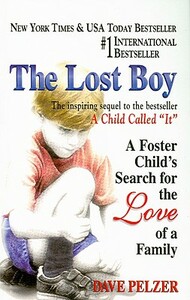Take a photo of a barcode or cover
adventurous
challenging
dark
emotional
funny
sad
tense
fast-paced
Graphic: Addiction, Alcoholism, Bullying, Child abuse, Cursing, Domestic abuse, Emotional abuse, Gore, Panic attacks/disorders, Physical abuse, Torture, Violence, Blood, Grief, Medical trauma, Stalking, Death of parent, Gaslighting, Toxic friendship, Alcohol
Such a great book, it is a sad read but it makes you reflect on your childhood and life right now. Highly Recommend it.
emotional
hopeful
sad
medium-paced
I think one of the most interesting things about the edition that I read is the amount of end material - a number of short pieces from different people mentioned in the book. Foster parents, teachers, care workers... it's really valuable to get all these different perspectives, and hats off to all those people for doing what must often be an excruciatingly difficult job. And it's clear from reading Pelzer's story that he can't have been easy to deal with as a teenager. Not his fault, you can't expect a kid to recover from trauma at the flick of a switch, and after all he basically had to learn to perceive and navigate the world from scratch. But what struck me was the amount of repetition in the book. This can feel a little frustrating to read, and I can only imagine how much more frustrating it was for Pelzer and his support system to live through - a sort of two steps forward, one step backwards pattern that lasts throughout his adolescence. The tone's a little lighter in this volume, though, which is a relief. As bad as some of Pelzer's experiences are in this book, at least he's away from his awful fucking parents. How he can retain any sympathy or compassion for his awful, enabling father is a mystery to me, though.
I'm sorry, Mr. Pelzer. While your story is a moving one, at times it sounds a bit too fairy tale-ish to ring entirely true.
dark
emotional
hopeful
informative
inspiring
reflective
sad
fast-paced
Once again a great read. Dave really knows how to tell his story. I think it's awesome that he was able to use his experience for the good.
Loved the commentary on "the system," social workers and everyone who is involved in this type of work.
It's important to remember that there are thousands of children like Dave, who weren't as lucky as he was.
It's important to remember that there are thousands of children like Dave, who weren't as lucky as he was.
In general, David is not the best writer. Certainly there are others who could tell his story in a more complex, adult way. Still it is his simplistic way of writing that invites the reader into the mind of a young foster child, making his words genuine and raw. This book serves as one person's insight in to the struggles of the foster system, as well as for foster children who are passed from place to place. I appreciated David's way of articulating his thankfulness for social service providers and graciousness with them, despite their own weaknesses and areas of improvement.
After reading the first part of David story in “A Child Called It” I had to read the sequel to find out what happened to him. I’m so glad David had good people placed in his life to help him overcome his horrific childhood and achieve his goals.




